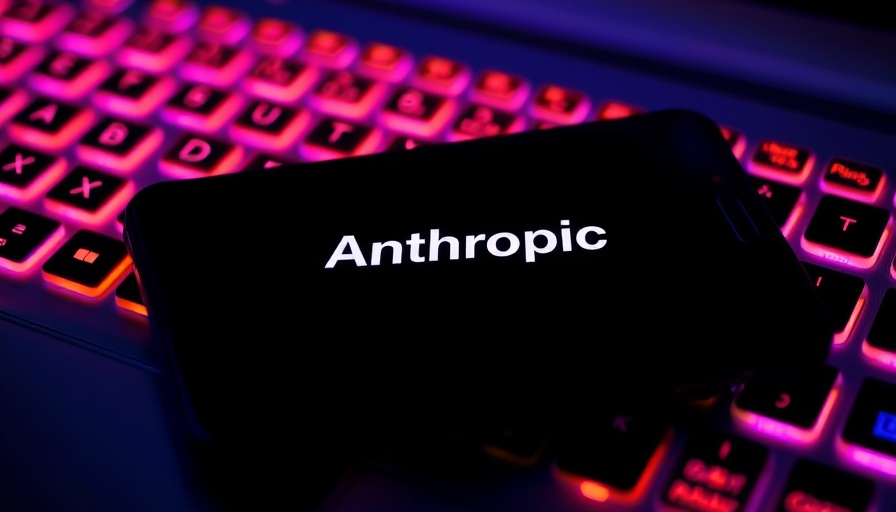
Understanding Claude's Restrictions: A Game Changer for AI in China?
In the fast-evolving landscape of artificial intelligence, a significant policy shift from Anthropic, an American AI firm, has raised considerable uncertainty within the tech community. The company recently announced constraints targeting entities that are more than 50% owned by firms based in "unsupported regions" like China, regardless of their global operations. This news has left many wondering about the implications for various AI tools reliant on Claude, Anthropic's flagship AI model.
Impact on Chinese AI Companies: Opportunities and Fears
As anxiety spreads among Chinese users, uncertainty looms over several platforms utilizing Claude, including Trae, an AI-powered code editor developed by ByteDance. Users of Trae have voiced concerns regarding potential access restrictions to Claude, with questions surfacing about refunds and service continuity. Although a Trae manager recently reassured users that Claude access remains available, this situation highlights a growing tension between the innovation-driven tech sector and geopolitical influences. Could this be an opportunity for local AI firms to innovate further, or a looming crisis?
Competitive Response: How Will Tech Giants Adapt?
In response to these restrictions, other Chinese tech giants are attempting to appease users. Alibaba and Tencent offer their own versions of coding agents that leverage Claude. With Alibaba's Qoder and Tencent's CodeBuddy finding their footing, the competition to retain users has spurred innovation among these tech giants. The question remains: will users shift allegiance based on access terms, or will they choose familiarity with established platforms?
A Broader Context: The Geopolitical Landscape of AI
The tensions surrounding AI access reflect larger geopolitical dynamics affecting tech companies. Restrictions imposed by American firms against Chinese entities can quash innovation by limiting cooperation across borders. The move to limit Claude's availability serves as a critical reminder of the fragile state of partnerships in international tech. As the AI race accelerates, how will regulatory frameworks keep pace with these rapid advancements?
Future Insights: What Lies Ahead for AI Access?
Looking forward, it’s essential to analyze how these restrictions could influence future collaborations and innovations in artificial intelligence. Will companies find loopholes or alternative models to navigate these challenges? Experts propose that innovation may soon emerge from unexpected quarters, as companies adapt to the regulatory landscape. Emerging technologies may foster a new breed of AI that meets international standards.
What Can Users Expect? Stay Informed!
For AI enthusiasts, this tumultuous phase presents both challenges and opportunities. The technology landscape is not static, and staying informed will be crucial as the regulatory environment continues to evolve. Users of AI tools backed by Chinese companies must remain vigilant, monitor updates, and engage with these platforms to advocate for their interests.
As the landscape of AI continually shifts, users and stakeholders must navigate this uncertainty swiftly. If you find value in understanding the implications of AI policies globally, stay tuned for the latest news and insights into AI transformations, innovations, and disruptions that may shape your experiences.
 Add Row
Add Row  Add
Add 




Write A Comment